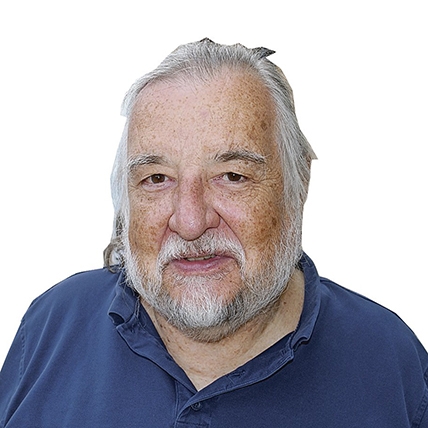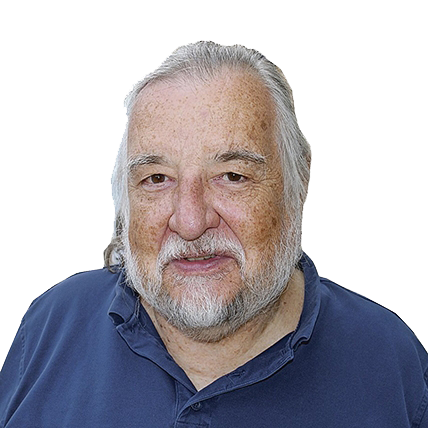On rare occasions I wish that premiers Moe and Smith – and to a lesser extent Ontario’s Doug Ford – would stop being so predictable.
Mind you, it makes my efforts to create a column worth reading (in my estimation, anyway) a lot easier, but at the same time it makes the job even more difficult because I have to then try to find something pithy and original to include within its contents.
Take, for instance, the conversation in last week’s column focused upon Poilievre’s weakening polling numbers. Despite that omen, premiers Smith, Moe and Ford are still pursuing their “I hate Justin” theme by backing Poilievre in his constant complaining as to how (not “why”, unfortunately) the PM isn’t listening to Canadians.
Poilievre’s complaints run the gamut of social and economic unrest plaguing Canadians. To him, the federal government’s efforts to tackle affordability issues (including the dramatically rising cost of food) or deal with our housing crisis, while simultaneously pursuing a climate policy that includes imposing a carbon tax on the acquisition or utilization of petroleum products “just aren’t working”.
Sometimes, however, I feel sorry for our wannabe future PM, for at times it seems that Poilievre never bothered to take any Canadian History classes (now weirdly referred to as Social Studies). Those of us over the age of 40 can recall when the Liberals were grudgingly called “the natural governing party of Canada.” That was in the era where Justin’s father, Pierre, was well known in western Canada for telling protesting farmers that they were “Number 1” in his book with that infamous middle finger salute.
In 2015 it took only microseconds Stephen Harper of ridiculing newly elected Liberal leader Justin Trudeau to get Canadians to think that maybe, just maybe, it might be time for a return to the good old days of Liberal pragmatism, no matter what residually negative feelings the electorate might still have regarding Papa Trudeau’s antics or bribery scandals.
A substantial portion of Canadian voters simply don’t trust Poilievre to do any better in managing our economy. When pushed to offer policy alternatives by our true media, he could only respond by either insulting the questioner or refusing to answer and suggesting that the scribe was merely interested in furthering the Liberals’ harmful agenda. So when the Liberals finally released their housing agenda prior to budget time, and followed it up with high profile visits to major population centres across Canada to promote its terms, the only response either Poilievre or the premiers of Saskatchewan and Alberta could offer was a now familiar type of protest, namely that once again, those damned federal Liberals were stomping all over the constitution by meddling in affairs that were specifically designated to be exclusively within the authority of provincial governments.
Any moderately informed Canadian knows from our historical confrontations between the federal government and provincial premiers knows that whenever the feds offer huge dollops of cash to deal with a universally plaguing issue, complaints by the premiers suddenly become whispers as they line up for their share of the coin.
Not Scott Moe, though; last Friday he was attending a Prince Albert Chamber of Commerce Luncheon when he tore into the announcement that the feds would be creating a $6 billion “Canada Housing Infrastructure Fund”, $5 billion of which would be made available to the provinces, PROVIDED that they commit to using the monies to provide what are now being referred to as “missing middle” homes: duplexes, triplexes, townhouses, and multi-unit apartments. While scrupulously avoiding the threat of another “notwithstanding” bill about to hit the floor of the Marble Palace, Moe’s objections were specifically directed at the PM, noting that “This is an area of provincial jurisdiction, [and] I think more broadly, what we see with the federal government [acting in this manner] is a Prime Minister who is mistaking what his job actually is.”
Premier Smith was even more direct, almost immediately announcing the proposed creation of a “Provincial Priorities Act”, something that would ultimately prohibit any entity over which the province has jurisdiction from entering directly into any formal agreement with the federal government unless they first had the permission of the Alberta government.
To be honest, both premiers appear to be immersed in writing a new script for a Monty Python spoof, OR as Wendy’s commercials once asked, “Where’s the beef?” The federal government, now knowing that the shortage of affordable housing is now a cross-Canada problem (and being constantly reminded of that fact by Poilievre) they have reacted with a peremptory fashion to tackle the problem head-on, and across provincial lines – which is their option, legislatively speaking.
The issue fueling both Moe’s and Smith’s objections has nothing to do with constitutional boundaries defining federal or provincial obligations. By accepting the money the provincial governments must not only meet the well-defined criteria that determines how the money is to be used, but must also publicly acknowledge its source, a federal government long criticized for doing nothing to resolve public policy shortcomings, yet once again coming forward with tentative solutions of which the province has yet to think about or bring forward themselves.
What is simply hard to understand is why the Conservatives or anyone else can fight the inherent logic of this funding instrument. Not only does it address urban sprawl, it allows municipalities to now plan their future infrastructure based upon this constraint in land usage and therefore less cost.
As CBC “At Issue” commentator Chantal Hebert noted this past Thursday evening, those not feeding off the limited oxygen supply in the Canadian political “bubble” are starting to see through this war of negative words being thrown at them by Poilievre and his supporters, and again are starting to see the Liberals as being the only party actually looking for “solutions” to their day-to-day concerns. This about-face SHOULD be worrying not only the Conservative Party hierarchy, but its myriad supporters in positions of power as well – but it’s not…
And that lack of vision and understanding is going to continue to hurt provincial quarterbacks such as Moe or Smith in the near future, who in staring at the scoreboard at the moment have taken their eyes off the defensive line-up that the “stupid” Liberals led by Justin Trudeau have adjusted in order to turn this political game around.


